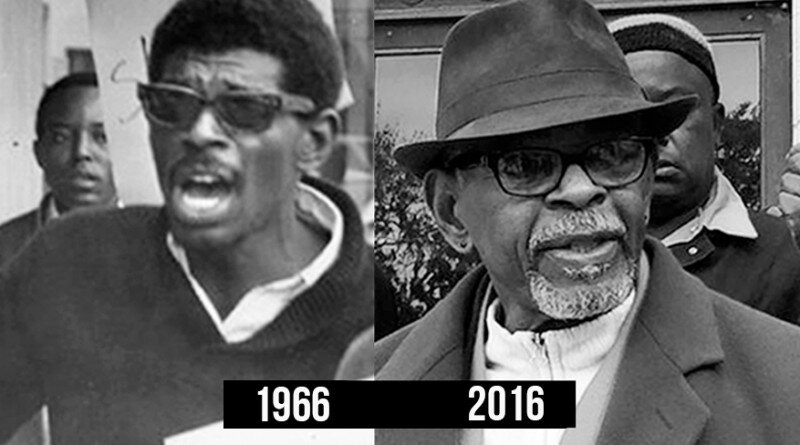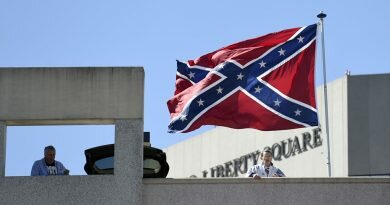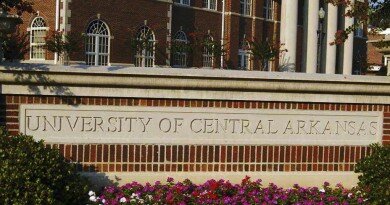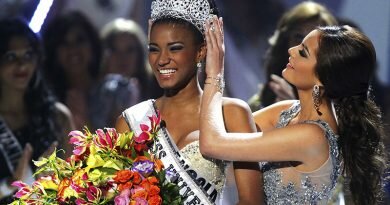blackmattersus.com
Good Morning, Mr. Yeshitela! We’re so happy to have you here with us today. Could you please explain the international status of the Uhuru movement at the moment?
Omali Yeshitela
Please, call me Chairman Omali. The international status of the Uhuru Movement is that we’re established in various places round the world including the Caribbean and the United States. We are also located in Sweden, Holland, Norway, the United Kingdom, we are organizing, and have organizers in France and Germany as well. We’re located in West Africa, in Sierra Leone in particular. We do some work in Senegal and we have organizers in Nigeria. We are also located in South Africa. And so we are building in various places throughout the African world, wherever Africans are located we’re trying to organize and put down on the ground an actual revolutionary organization.
blackmattersus.com
I think the Uhuru Movement is one of the biggest and strongest Black organizations in the U.S now and only you have a history of more than 40 years. People know the Black Panther Party, the MOVE and some organizations which no longer exist or are no longer as active as they were some years ago. But the Uhuru movement has been able to stand all this while. How did the Uhuru Movement avoid persecution by the police in the 70s and the 80s?
Omali Yeshitela
Well, we did suffer the same kind of persecution that most of the organizations did. Our history goes back to the 1960s. I was an organizer myself at the Student Nonviolent Coordinating Committee (SNCC), the organization that initiated the Black power movement in this country in the 1960s. I personally experienced being arrested, imprisoned, in fact, sentenced to 5 years in prison because of a political action that I was involved in with the SNCC. So we have the benefit of history for one thing. The other thing is, I think that we’ve been relatively sound ideologically, historically and we have developed in that fashion. We have been relatively clear about what the struggle is for. Many organizations of the past were seeing themselves and their actions dominated by what was happening at the moment without being able to say towards what end. In all of the activities we’re involved in, our objective is to govern, and that is to say we actually are practically involved in trying to prepare ourselves and to create the circumstances and the actions that will permit African people to seize power. And central to that, of course, is the total liberation and unification of Africa and African people around the world under the leadership of the African working class, so we’ve always been clear that the objective is to govern. It’s not to just succeed in a particular action of the moment which will not necessarily contribute to our being able to govern.
blackmattersus.com
So the secret is that you’ve been able to stay consistent on your ideologies.
Omali Yeshitela
Consistent on our ideology and to have a long view as opposed to being subsumed by what was happening at the moment. What happens in the moment is extremely important but how do we deal at the moment in a way that contributes to our objective of having power, taking power and exercising power as African people?
blackmattersus.com
I’m trying to understand the size of the Uhuru Movement right now. You have Uhuru News, InPDUM, you have Uhuru Foods, ASI, APSP and so on, how many people are involved in all these organizations and how many people are involved in the Uhuru Movement itself?
Omali Yeshitela
Well, the Uhuru Movement I think is much larger than the African People’s Socialist Party. All of the things that you’ve mentioned fall under the leadership of the African People’s Socialist Party, and everything that you mentioned functions as a mass organization. You didn’t mention, for example, the All African People’s Development and Empowerment Project (AAPDEP), which is the development organization that has won people like doctors, agriculturists, to do work in particular African communities in Sierra Leone and other places. You have the International People’s Democratic Uhuru Movement (InPDUM), which is a mass organization, a lot of people in that organization. There’s even the African People’s Solidarity Committee (APSC), which is the organization of white people who work directly under the leadership of the African People’s Socialist Party. There’s the party itself which is a small organization of forces who are professional revolutionaries the advanced detachment of the working class that provides leadership on all of these organizations that I’ve just mentioned, and these organizations exist, as I’ve mentioned earlier, in various places around the world. So we’re a relatively small organization, we’re not as large as we need to be, but we’re growing every day and as Malcolm X used to say, when we talk about numbers, those who say don’t know and those who know don’t say.
blackmattersus.com
Could you tell us more about Uhuru Foods? It’s very interesting to know about these kinds of special food projects inside the Black community.
Omali Yeshitela
When I talk about Uhuru Foods, there’s also Uhuru Furniture, we have Uhuru Furniture store in Philadelphia and another store in Oakland, California. These are 2 stores that we have, and Uhuru Foods is an entity that functions primarily in Florida and in the Bay Area of California, and it is extremely active. We have created our own commercial kitchen and things like that and we sell right now thousands of pies every holiday, but even during non-holiday seasons, we have festivals. In fact, we have a huge festival of our own in Philadelphia with more than a 100 vendors who make their living connected to our movement there. And so the whole question of economic development is a critical issue as far as we’re concerned, because really there’s no way you can talk about being free if you’re not talking about being self-determining, and economics is critical to the question of having self-determination. But that’s a whole department associated with the Uhuru Movement and that’s all the work they do, and this is work that goes on every day. And so there are thousands of people who have a relationship with Uhuru Foods, in Oakland, California and St. Petersburg, Florida, in particular, we have spaces at major events where our products are being sold. We’re in the process now of putting our products in some supermarkets particularly in the California Bay Area. So it’s a growing institution and we are being able to hire more and more people not only in Uhuru Foods but in Uhuru Furniture as well.
blackmattersus.com
And in these organizations are there mostly Black people working?
Omali Yeshitela
Some white people work in some of the organizations. Our project is one that is designed to make it all African, but there’s some expertise that’s not easily available to us because many of the Africans who have some of the expertise that we’re looking for employ themselves with white corporations and we don’t have easy access to them. So for some expertise we’ve had to utilize the solidarity committee that we’ve created and then the objective is moving forward to – and we are doing this on a regular basis- put African people into those places where there are now some white people working, but the vast majority of the people in these institutions are Africans and the whole process is led by Africans.
blackmattersus.com
Do you collaborate with the Black Lives Matter movement or the Black Riders Liberation Party and similar groups?
Omali Yeshitela
Well, when circumstances allow for us. For example we created the African People’s Socialist Party (APSP), the Black is Back Coalition for Social justice, Peace and Reparations (BIBC). We created this organization in 2009 and we called on all legitimate Black organizations throughout the country to join with us. Many could not join with us because the first action we were involved in was a protest at the White House against the regime of Barack Hussein Obama, and most of the so-called Black nationalists and even the so-called Black communists refused to support that because they were supporters of imperialism as long as it had the face of a Black man like Barack Hussein Obama. So even before there was a Black Lives Matter, we were calling on African people to unite around some basic principles of self-determination, anti-imperialism, and so we’ve been open to work with anybody and we have participated in actions. For example, we were in Ferguson in a very serious way. We worked with most of the people who were involved and struggling in Ferguson. This is before the hashtag #blacklivesmatter ever came about. In fact we have organization on the ground in Ferguson right now as a consequence of the work that we started there when Mike Brown was killed on August 9, 2014.
blackmattersus.com
I’ve also seen the types of annual membership you have. You have 9 levels and I can see that 7 of them are named after famous activists like Huey P. Newton, Malcolm X and other famous activists of that era. Does it mean that the Uhuru Movement used to have connections with the Black Panthers and the African Muslim community?
Omali Yeshitela
We’ve worked with Muslims. For our party, religion has never been a factor to determine what kind of relationships we would have in terms of organization. If they have the ability to stand up against imperialism and to unite around questions of self-determination of our people, then we have no qualms working with them and have worked with them. We’ve worked with an assortment of Muslim organizations and personalities over the years. In terms of the Black Panther Party, the last political speech that Huey P. Newton made was made at our headquarters in Oakland – in the Uhuru House in Oakland – in 1989. So we were closer to Huey than we were to most of the members of the Black Panther Party but some of the members of the Black Panther Party came into the Uhuru Movement, the African People’s Socialist Party, subsequent to the demise of the Black Panther Party as a serious political formation in this country.
blackmattersus.com
What we can see right now is that most of the Black movements in America care only about African-Americans, but in your speeches you keep talking about Africa itself, you keep talking about other communities of Black people. You’ve talked about Muslims too sometimes, state policy, does it mean that the Uhuru Movement is not just a voice for the Black community in America but also a voice for Muslims, for other minorities around the world and in America.
Omali Yeshitela
Well, we are African internationalists and when I see a Black woman suffering in Haiti, I’m looking at an African however she has been defined. When I see a Black person in Cameroon, I’m looking at an African who has now been named shrimp by the Portuguese who named that territory Cameroon because it comes from the Portuguese word for shrimp. So wherever we see Black people we’re looking at African people who sometimes exist with false national consciences but we are Africans. That’s the first thing. We’re African when we’re Muslim, we’re Africans whether we are Christians, we’re African no matter what our religions may be. We’re Africans when we speak French, we’re Africans when we speak whatever language, we’re African people, period. That’s the central thing that we recognize and so wherever we see Black people, we’re looking at Africans. Two, the other thing we recognize is that African people exist as an international community of human beings the majority of whom are suffering mightily since the advent of capitalist white power or white power that became capitalism. And so the world we live in, something like 80% of the people on planet earth are trying to survive off 10 dollars or less per day, half of the people are trying to survive off 2 dollars and 50 cents or less per day, and if you are in Africa, you’re lucky if you can have a dollar a day, where people work all day just for one meal. We are one international community struggling against oppression, and this oppression sometimes is defined as imperialism or what have you, but that’s the common enemy that we all have, and that’s an objective truth. Regardless of how individuals may think about it, objectively, that’s the case. And so that’s why we see unity with all the oppressed people who are fighting against this common enemy that we are fighting against, because we recognize that every victory over imperialism is a victory for African people. UHURU!








